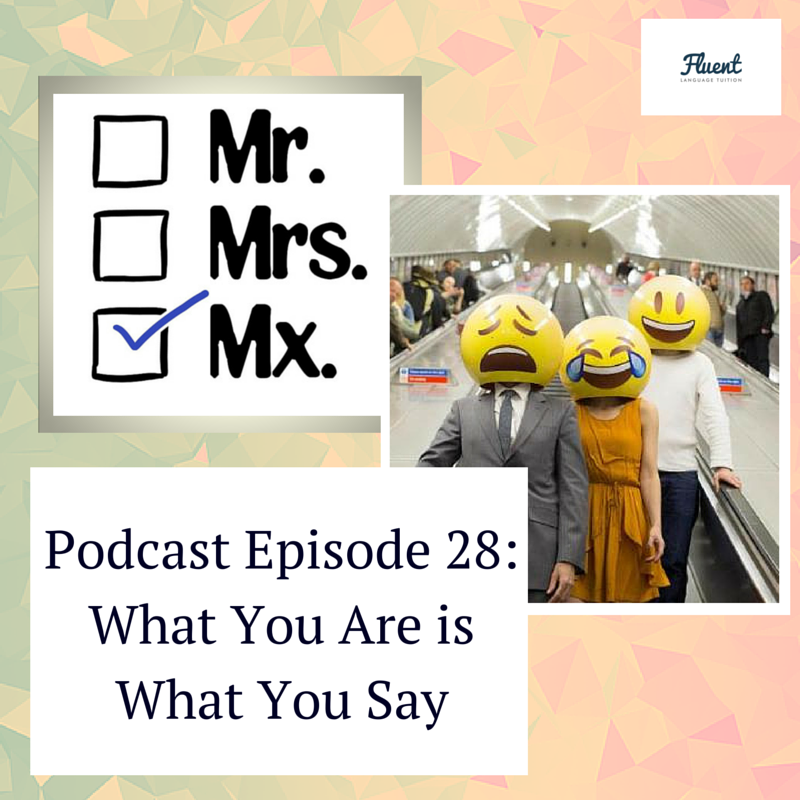It can hit you any time. You go blank. You're tired. You check out and disengage, not caring how to say anything in your target language.
For me this happened in week 3 of the honeymoon. We were at breakfast in our B&B and learnt that the other guests were Spanish. I tried to speak Spanish to them and nothing happened. My brain couldn't think of a single word. Spanish is a language in which I am usually quite comfortable. I'm not good or "fluent" but usually I have a good enough time keeping up a basic conversation. On this occasion, things were different. My mind went blank, I quickly apologised and chose to speak English.
A few hours later my husband asked a shop assistant how to say "Thank You" in Flemish and I could feel myself tensing up. I actually didn't even want to know. My language energy was spent and I could not have spoken a word in a new language if I tried.
Does Anyone Talk About This?
Language learning fatigue is much-discussed on the internet, but rarely examined in depth. For example, look at this article on the Huffington Post in which the author advises "Just take a break and try again." Yes, thanks, and the sky is blue.
For more in-depth and comprehensive perspectives, I'd recommend Actual Fluency Episode 47 as well as most of what J at the Compassionate Language Learner shares.
In some cases, the advice can lack compassion to a point that is intimidating. My eyes widened when I read Steve Kaufmann's description on his own video about burnout. It says:
Do you experience burnout when learning a language? Do you feel you don't want to go on? I don't.
Good on Steve that he doesn't have a problem, but on first impressions I felt that his thoughts on why he is so lucky (or is this implying superior skill?) were lacking a deeper understanding. Was he saying he's better than you if you have a problem that he doesn't know? Saying "if I had more time, I'd definitely do more in Czech" is not a statement that answers questions relating to mental overload or the erosion of motivation.
But towards the end of the video, Steve got down to a deeper point that I did feel comfortable with. He says
If your goal is just to learn the language and nail down these declension tables or whatever, I can see why you'd get burned out.
There's something in there. A purely technical drive to learning languages is just not enough to keep you motivated. No fake framework of goal setting and time stamps is going to get you through that one. This is why it's so flippin' hard to start off in language learning. That whole point between "I'm excited, I'm starting" and "I am reading newspaper articles" has the highest potential for burnout.
In other words:
No one likes being in the middle of things.
How much of your "burnout" feeling hits you when you find yourself in the middle of something? When you cannot see the end and you can't remember the start?
No matter if we're talking marathons or dieting or language learning, the recognition here remains the same. And the "take a break" advice feels feeble when you're lost in the weeds and struggling to remember what was on the horizon in the first place.
So, what advice can I give here? The following thoughts don't come from experience any more than common sense. Hopefully they'll provide a bit of both.
What Can You Do When You Feel %&!* About Language Learning
Here are ways to deal with Language Burnout when it happens, and to re-light that language fire.
1) Prepare Interesting Materials
Avoiding burnout starts with you and your attitude. Consider your motivations carefully, set up a positive image of what you want to achieve. I don't mean that you should put some words on a picture and post it on Facebook. Instead, focus on what interesting
For me as a new Welsh learner, it's the simple things that keep me interested. Covering another episode of Say Something In Welsh is all right, but really I want to know what happens to Siân and Ed in the BBC Welsh learning soap. Soon I may be able to watch Pobl y Cwm and one day there'll be a Kerstin party at the Eisteddfod. Such milestones are not about how many words I know or whether I'm technically proficient yet, but they work well when it comes to my own motivation.
Similarly, I urge you to stay away from wondering "how long does it take to become fluent in another language" or aiming for "a 15 minute conversation". For guidance on whether you are doing goalsetting wrong and what a constructive goal looks like, refer to episode 21 of the podcast.
2) Trust Yourself
No one knows you better than you know yourself. I hope that this also means you know you are awesome and that you chose to learn another language for a reason.
We have a tendency to push on and blame ourselves for lacking productivity, missing the "miracle morning" if we sleep past 6am. But deep down, a need for self-care is important in language learning too. Don't allow guilty thoughts to eat up your energy by telling you that you aren't "performing". Go slower than others and enjoy the journey.
This piece of advice is difficult for me to turn into something truly practical, so instead I'll bring out my coaching personality and tell you this:
If you shut off that internet for today and study nothing but your pillow for the next 48 hours, that is fine. The world will allow you that space. I believe in you, and I know you'll re-emerge with more motivation and strength than before. And all your work will still be here and wonderful when you return to it. You're not missing out.
3) Get What You Came For
If you didn't think that point 2 was hippy enough, here is an even more compassionate concept:
Pay attention to your inner wisdom
If you were excited about studying Chinese three weeks ago, and then the excitement turned into boredom and excuses, and you just don't want to do it, then you don't have to do it. As Barbara Sher puts it in Refuse to Choose, maybe you already got what you came for. For example, I feel that my motivation to learn Russian was mostly grounded in curiosity about Cyrillic writing. Once I discovered how this works, the language itself fizzled out for me. But I still got what I came for: Now I can read Cyrillic. And if I start travelling to Russia again, I'll be studying more Russian.
When you find your attention shifting to other languages, remember that line between discipline and compassion for yourself, and trust that you will return to what excites you in due time.
4) Combat Your Inner Critic
Maybe you'd like to think that you don't get tired, but most of us know ourselves too well for that. You are not a robot or a battery-operated productivity machine. Quite the opposite: You probably have plenty of stuff on your mind before you even pick up that language book.
When critical inner voices are telling you that you're a lazy learner who won't ever reach higher language levels, there are two key actions you must take.
Firstly, check the facts. Focus on what you can do and what you have learnt so far. Is it really nothing? Are you really stupid or failing?
Secondly, check whether you are catastrophising. This means thinking that all is lost, that one day of lost study means you're incapable of anything, or that your break in the Duolingo streak means you'll never be as good as anyone else. Take pride in resting, find a positive angle on it and vow to return when you are ready.
These mindset adjustments feel small, but you'll soon find that they all make a huge difference to your confidence and...believe it or not...your fluency!
Your Number One Job Is Being Happy
I hope that this collection of tips and perspectives will support you in a moment of weakness or tiredness.
Remember that your number one job is not to perform. Your number one job is to keep yourself as happy as healthy as possible, and language learning should fuel this (not the other way round).
Click here to share this message with others on Twitter.
Have you dealt with self doubt and language learning burnout before? Share your stories in the comments below, or for added privacy feel free to contact me to share your thoughts.







